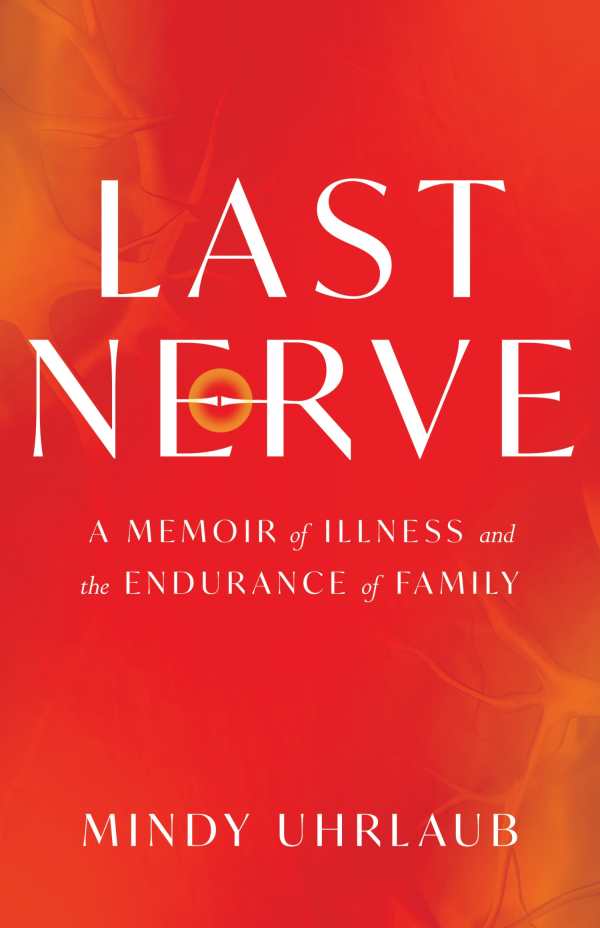Last Nerve
A Memoir of Illness and the Endurance of Family
Focusing on hope and resilience in the face of terminal illnesses, Last Nerve is a compelling memoir.
Mindy Uhrlaub’s revealing memoir Last Nerve is about living with a deadly neurodegenerative disease.
The book begins in medias res, with Uhrlaub visiting the wilderness program in Utah where she’d sent her son for help with his behavioral issues. Uhrlaub faced larger personal issues too: A genetic test revealed that she carried the gene for ALS, which her mother was dying of, and that it could take its toll at any time. At the same time, her husband was undergoing chemotherapy for stage 4 lymphoma. Undaunted, she decided to aid in the search for a cure, volunteering for clinical trials, serving on committees, and testifying to the Food and Drug Administration.
Uplifting in tone despite its grim subject matter, the book focuses on hope and resilience. Uhrlaub writes that she wants to “battle the monster for her kids”; her diagnosis functioned as a call to activism. There are also clinical descriptions, as of holding a barf bag for her husband in the emergency room and about the tension of undergoing multiple biopsies without answers. Unflinching coverage of the bodily fluids involved in cancer treatments, spinal taps, and lumbar punctures flesh out the picture further. Uhrlaub is raw about expressing her fears of losing her husband while grappling with health issues of her own; she writes that she rebuffed a scientist who asked her if she would like to donate her brain to science, saying “not while I’m still using it.”
The book mixes scenes of domestic life with medical experiences to show the emotional toll that illness takes on families too. Uhrlaub’s son peeled off skin to cope with the stress of his father’s cancer, and Uhrlaub’s own gray-streaked hair comes to signify her persistence in spite of genetic ALS. The family members’ emotional states are revealed in subtle ways, capturing the interiority of their experiences: The rule of threes is used to itemize what Uhrlaub needs to express her hurt and vulnerability, for example. Also evocative are images of sun shining through a glass of wine and a breeze rocking moored sailboats, tempering the lingering threats of the family’s diagnoses.
Beyond the family’s experiences, the book builds toward hopeful considerations of how scientists are addressing ALS and other medical issues. Still, the dangers of the family’s conditions are never minimized. For Uhrlaub herself, the book remains a story of survival, declaring “It’s not selfish to want to keep all of my bodily functions” among other frank statements about having an incurable disease.
An inspiring memoir, Last Nerve is about stepping up for family members and others who carry the ALS gene.
Reviewed by
Joseph S. Pete
Disclosure: This article is not an endorsement, but a review. The publisher of this book provided free copies of the book and paid a small fee to have their book reviewed by a professional reviewer. Foreword Reviews and Clarion Reviews make no guarantee that the publisher will receive a positive review. Foreword Magazine, Inc. is disclosing this in accordance with the Federal Trade Commission’s 16 CFR, Part 255.

